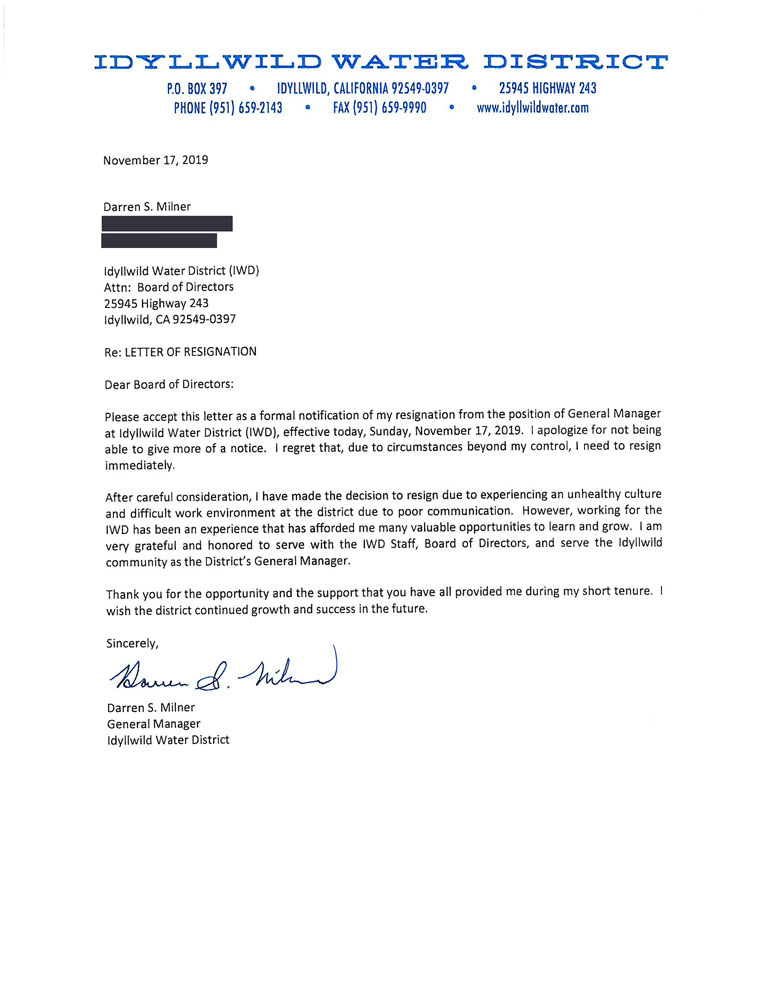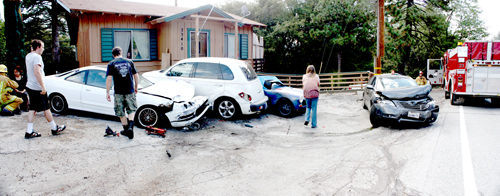On June 13 and 14, the Riverside County Board of Supervisors heard County Executive Officer Jeff Van Wagenen discuss the proposed budget for fiscal year (FY) 2022-2203, which begins July 1. Several county department heads made requests for more funding beyond the initial level, which Van Wagenen recommended and presented to the board.
The total county budget is $7.5 billion. Nearly half of this funds Health and Hospital Services ($1.9 billion or 25.7%) and the public safety agencies ($1.8 billion or 24.2%).
Overall, Van Wagenen said one of his major priorities was reducing the county’s long-term structural deficit. “For years, we have been spending more money in the General Fund’s discretionary budget than was coming in,” he stated.
The proposed budget is balanced. Normal revenues are sufficient to fund the county’s business. Van Wagenen stressed that “[the proposed budget] does not rely on one-time revenue for any ongoing expenses.”
Other highlights include a discretionary budget of $1.013 billion, and revenues and expenditures are balanced. Also, the proposed budget includes $19.7 million for augmenting possible budget requests and another $20 million for unexpected or new contingencies.
The expected reserves available at the beginning of the FY are $368 million. Ten years ago, the county’s reserves were $200 million and didn’t surpass $250 million until four years ago.
Some of the departmental increases proposed for next FY include for the sheriff ($36 million, including augmenting patrols in unincorporated areas), fire ($22.3 million for surge staffing), Department of Public Social Services ($16 million), district attorney ($7.2 million), public health ($3.1 million), the Registrar of Voters ($2.1 million) and $2 million for the Unincorporated Communities Initiative (UCI). For FY 2021-2022, the county budgeted $3 million for UCI. The added $2 million is about a 66% increase for unincorporated areas.
Monday’s budget hearing took nearly five hours. After presentations from several department heads, such as District Attorney Mike Hestrin, Sheriff Chad Bianco, County Fire Chief Bill Weiser, Director of Code Enforcement Bob Magee, and representatives from Behavioral Health, the Department of Public Social Services and Animal Services, the supervisors discussed several options that would allow approving several of the funding requests and still have a balanced budget.
As the board began its discussion of the ardently made requests, Supervisor Kevin Jeffries (2nd District) urged his colleagues to be prudent.
“I’m not interested in taking our first balanced budget into deficit spending,” he averred. “I would like sometime in my political career to have a balanced budget. I didn’t get to enjoy that in the state Legislature, but would love to enjoy it, at least, one year here.”
And 3rd District Supervisor Chuck Washington said, “I’m very proud our CEO presented a balanced budget. But my highest priority is for constituents; that they’re safe and feel safe.”
He supported more funding for the sheriff’s and fire departments. He also mentioned the noise issues associated with short-term rentals and urged finding cooperative solutions to this issue that avoided sending sheriff’s deputies to resolve these types of complaints. Funding to continue the increased staffing for Code Enforcement for weekends and evenings was already included in the proposed budget.
The next day, Tuesday, at the end of the board’s regular meeting, Van Wagenen presented a revised budget based on the supervisors’ recommendations. He supported increases totaling $27.3 million.
The largest was $10 million for the Sheriff’s Department. This includes $3.8 million for more correction office staffing and the balance for equipment and supplies.
In his presentation, Bianco noted that Riverside County is the second-largest Sheriff’s Department in the state and the fourth largest in the country. “From my perspective, we actually don’t operate at the size we really are. We operate as though we’re one of the smallest.”
Van Wagenen also committed that his staff will work with the sheriff’s staff to identify a means to acquire one or more new helicopters. Washington was very supportive of replacing the current aircraft but favored a loan or lease agreement rather than providing the total cost from within a single year’s budget.
Also, the Sheriff’s Department will develop a service agreement for unincorporated areas. This will be similar to its service agreements with the county’s contract cities. Jeffries initially recommended this idea and Bianco avidly agreed.
“So we know, going forward, we have a commitment to our unincorporated residents,” Jeffries specified. This agreement would include a fixed number of staffing, for example. Bianco replied that his office was already working with the Executive Office to develop the document.
Hestrin requested funding to hire more prosecutors. He explained that case loads were increasing for two major reasons. First, the number of courtrooms available to argue cases is about half the number available before the pandemic, which results in fewer cases heard each week. Secondly the state Legislature enacts new laws requiring more cases. For example, Senate Bill 483 allows prisoners to petition for early release. A new sentencing process was created to help alleviate some jail crowding.
“This is part of Sacramento’s decarceration approach, but they don’t provide funding to implement it,” he said. In March, his office had 300 cases to address and he expects another 1,400 to 1,500 this year.
The board approved these changes with a 4-0 vote. Chair Jeff Hewitt was absent for Tuesday’s regular meeting.
Van Wagenen will bring the final budget, with changes, to the board for approval at the June 21 session. The initial FY 2022-2023 budget must be approved by July 1.






